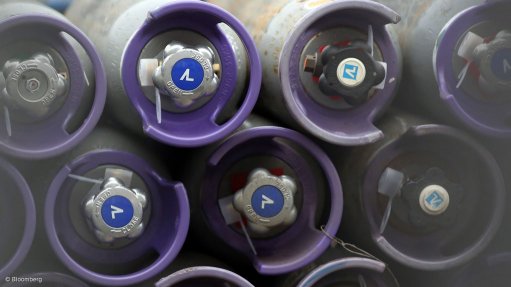What is happening here?
Something is going on; That’s not quite clear; Somebody turn on the light (Eskom permitting); ‘We’re gonna have a party; It’s starting tonight.
It is the evening of March 21 and I find myself in the audience at the Ticketpro Dome, where a capacity crowd is rocking to 66-year-old Lionel Richie’s music. Yes, he will be 67 on June 20 – unbelievable – and he is in the middle of his extended rendition of the 1986 hit, Dancing on the Ceiling. (His album of the same name became the first album to be simultaneously certified silver, gold, platinum and double platinum by the Recording Industry Association of America since the institution established double platinum in 1984.) In all my years of attending live concerts (rock concerts), this is the singularly most impressive vocal display that I have ever heard. What makes it even more impressive is the ease with which it is delivered. There are hardly any backup vocals to speak off; it is just the man himself.
Around me is a multiracial and multicultural wave that sweeps every inch of the Ticketpro Dome, with each person bobbing and weaving to their own sound and accord but collectively providing the most unreal experience. It provides a glimpse of the Rainbow Nation, which, like nature’s rainbow, evaporates when Richie leaves the stage and the main lights are switched on, following his single encore, We’re the World (USA for Africa), the 1985 song he co-wrote with Michael Jackson.
The closing lyrics of the encore song are worthy of contemplation: “When you’re down and out, there seems no hope at all; But if you just believe there’s no way, we can fall; Well . . . well . . . well; Let’s realise that a change can only come; When we stand together as one.”
Safeguards Are Happening
A safeguard, or safeguard duty, is called a fair trade remedy, which implies that it is imposed against imports that enter a country fairly, and is unlike dumping duties, which are imposed against unfair imports. In essence, the rationale behind imposing a safeguard duty is that a country is unable to compete against imports that are fair – even though the South African rand is depreciating, which affords South African producers ‘natural’ protection.
You might recall that, on February 19, the International Trade Administration Commission of South Africa (Itac) announced, through a Government Gazette notice, that, on the instruction of Economic Development Minister Ebrahim Patel, it would investigate and evaluate an application by the South African Poultry Association for the imposition of safeguard measures in terms of Article 16 (referred to as ‘Section 16’ in the application) of the Trade, Development and Cooperation Agreement between the European Community and its member States (read European Union, or EU) and South Africa on frozen bone-in portions of fowls of the species Gallus Domesticus – chicken to you and me – classifiable under tariff subheadings 0207.14.91; 0207.14.93; 0207.14.95; 0207.14.96; 0207.14.97; 0207.14.98 and 0207.14.99. Comment was due by March 10.
Then, just more than a month later, on March 24, Itac informed of the initiation of an investigation for remedial action in the form of a safeguard duty against increased imports of certain flat-rolled products of iron, non-alloy steel or other alloy steel (not including stainless steel), whether or not in coils (including products cut to length and ‘narrow strip’), not further worked than hot-rolled (hot-rolled flat), not clad, plated or coated, excluding grain- orientated silicon electrical steel, classifiable under tariff subheadings 7208.10, 7208.25, 7208.26, 7208.27, 7208.36, 7208.37, 7208.38, 7208.39, 7208.40, 7208.51, 7208.52, 7208.53, 7208.54, 7208.90, 7211.14, 7211.19, 7225.30 7225.40, 7225.99, 7226.91 and 7226.99.
The application was lodged by the South African Iron and Steel Institute (Saisi), an industry body, on behalf of its members.
The period of investigation for data evaluation for the purposes of determining the allegation of serious injury is January 1, 2012, to December 31, 2014, plus additional seven months’ information for 2012 to 2015 (January 1 to July 31).
The injury analysis relates to information submitted by ArcelorMittal South Africa, a member of Saisi, with a collective output of similar or directly competitive products constituting a major proportion (more than 70%) of the total domestic output of those products.
According to the notice, Saisi submitted that a confluence of events forms the basis of the unforeseen development that supports this application – that is, ultimately, the considerable oversupply of steel, specifically the subject products, in the world today causing a surge in the volumes of imports into the Southern African Customs Union (Sacu).
Saisi contends, besides others, that, during the Uruguay round of negotiations, South Africa did not foresee the following: the unprecedented steep rate of increase in steel production capacity over the ensuing two decades; the significant market downturns in emerging economies and the resultant contraction of demand for steel; record export volumes by countries with excess capacity, fuelled by excess steel supply; given the global nature of the steel industry, excess capacity in one region can potentially displace production in other regions, thus harming producers in those markets; recent trade measures by those countries which are the result of all the above unforeseen developments, and the fact that their markets are now protected, contracts the global demand for steel even further, exasperating the problem of increased imports into the Sacu region; the oversupply of steel has led to a deterioration in the financial situation of steelmakers globally, including those in the Sacu region; the excess capacity is considered one of the main challenges facing the global steel sector today; and, despite slowing demand growth and the existing excess capacity, there are several new investment projects under way and planned, expected to lead to further increases in imports.
Comment is due by April 13.
Safeguard in Action
On July 25, 2014, the South African Revenue Service (Sars) imposed a safeguard duty on frozen potato chips, or French fries, classifiable under tariff subheading 2004.10.20, at a rate of 40.92%. This followed the imposition of provisional antidumping duties on December 20, 2013, which were imposed up to and including June 20, 2014 (yes, there was a gap).
Sars also announced on July 25, 2014, that, with effect from July 5, 2015, up to and including June 4, 2016, a safeguard duty of 20.45% would apply. On the lapse of the safeguard duty, expect the imposition (or reimposition) of antidumping duties – an Itac Government Gazette notice of August 8, 2014, titled ‘Notice of conclusion of an investigation into the alleged dumping of frozen potato chips originating in or imported from Belgium and The Netherlands’, stated: “The Minister of Trade and Industry decided to suspend the imposition of the antidumping duties until the termination of the safeguard duty on frozen potato chips.”
Comments
Press Office
Announcements
What's On
Subscribe to improve your user experience...
Option 1 (equivalent of R125 a month):
Receive a weekly copy of Creamer Media's Engineering News & Mining Weekly magazine
(print copy for those in South Africa and e-magazine for those outside of South Africa)
Receive daily email newsletters
Access to full search results
Access archive of magazine back copies
Access to Projects in Progress
Access to ONE Research Report of your choice in PDF format
Option 2 (equivalent of R375 a month):
All benefits from Option 1
PLUS
Access to Creamer Media's Research Channel Africa for ALL Research Reports, in PDF format, on various industrial and mining sectors
including Electricity; Water; Energy Transition; Hydrogen; Roads, Rail and Ports; Coal; Gold; Platinum; Battery Metals; etc.
Already a subscriber?
Forgotten your password?
Receive weekly copy of Creamer Media's Engineering News & Mining Weekly magazine (print copy for those in South Africa and e-magazine for those outside of South Africa)
➕
Recieve daily email newsletters
➕
Access to full search results
➕
Access archive of magazine back copies
➕
Access to Projects in Progress
➕
Access to ONE Research Report of your choice in PDF format
RESEARCH CHANNEL AFRICA
R4500 (equivalent of R375 a month)
SUBSCRIBEAll benefits from Option 1
➕
Access to Creamer Media's Research Channel Africa for ALL Research Reports on various industrial and mining sectors, in PDF format, including on:
Electricity
➕
Water
➕
Energy Transition
➕
Hydrogen
➕
Roads, Rail and Ports
➕
Coal
➕
Gold
➕
Platinum
➕
Battery Metals
➕
etc.
Receive all benefits from Option 1 or Option 2 delivered to numerous people at your company
➕
Multiple User names and Passwords for simultaneous log-ins
➕
Intranet integration access to all in your organisation


















